During World War 2, the Allied forces may have emerged victorious, but the journey was punctuated with a number of significant blunders. Quite often, the missteps of the winners tend to be overlooked or forgotten, yet they can provide valuable learning opportunities. The Allies were far from flawless, with errors ranging from the policy of appeasement, the mishap at Dunkirk, to the assault on Pearl Harbor. So, what exactly were these mistakes? Prepare to take a trip down memory lane, as we explore 25 Errors Commit by the Allies During World War 2.
The Failure of Appeasement
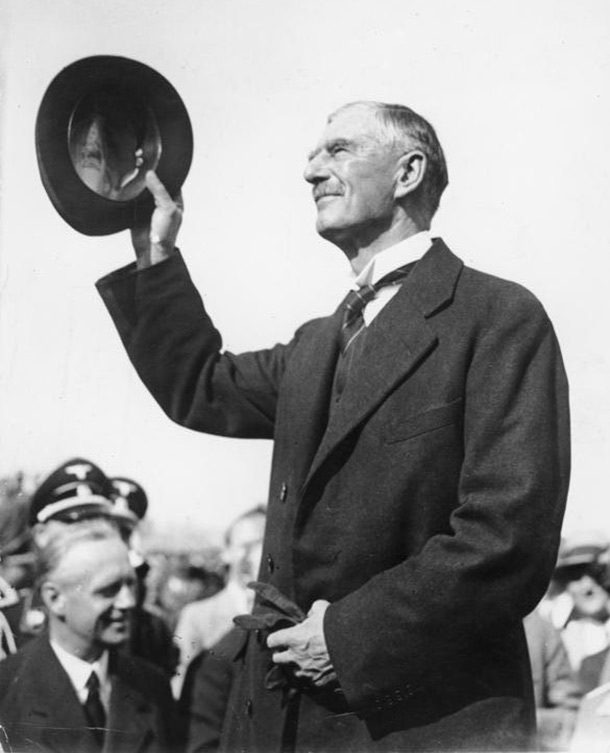 Source: https://www.history.co.uk/history-of-ww2/appeasement
Source: https://www.history.co.uk/history-of-ww2/appeasement In the pre-war period of World War 2, Britain and France took on a policy of appeasement to stave off war. Knowing the European democracies didn’t want war, Hitler pushed their limits to see how much he could get away with. This policy became notorious when English Prime Minister Neville Chamberlain met with Hitler at Berchtesgaden and, without consulting the Czech government, essentially gave Hitler all of the Sudetenland. He came back to England declaring “Peace in our time,” but only made things worse. Hitler eventually dismembered all of Czechoslovakia.
Underestimating the Japanese
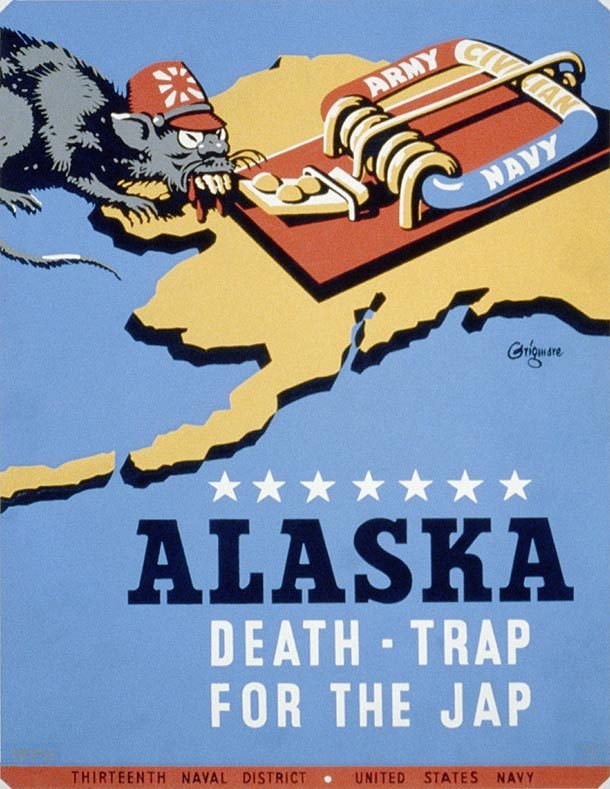 Source: https://news.nationalgeographic.com/2016/12/countdown-pearl-harbor-attack-twomey-anniversary/
Source: https://news.nationalgeographic.com/2016/12/countdown-pearl-harbor-attack-twomey-anniversary/ American racists’ beliefs about the Japanese were a big reason they weren’t ready for them before Pearl Harbor. American magazines and newspapers considered them inept, technologically backward, and “funny” people. They also thought they were physiologically incapable of being good aviators and that their inner ear was askew because their big sisters would bounce them around on their back.
Failure to Anticipate the German Blitz
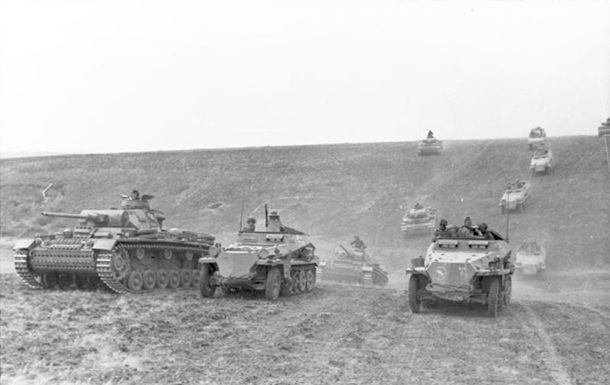 Source: https://archive.nytimes.com/www.nytimes.com/books/00/09/17/reviews/000917.17staffot.html
Source: https://archive.nytimes.com/www.nytimes.com/books/00/09/17/reviews/000917.17staffot.html Despite clear signs that Hitler was about to invade France through the Ardennes, France, and other Allied leaders totally ignored them, not believing Hitler would do it. Failure to anticipate Hitler’s actions led to one of the most devastating military defeats in the 20th century with Hitler unleashing a panzer offensive known as the blitzkrieg. Seven weeks later, Hitler toured Paris for the first time, taking a picture in front of the Eiffel Tower. To spite them, he forced France to surrender in the same carriage that Germany surrendered 22 years before.
The Failure to Attack Germany after They Invaded Poland
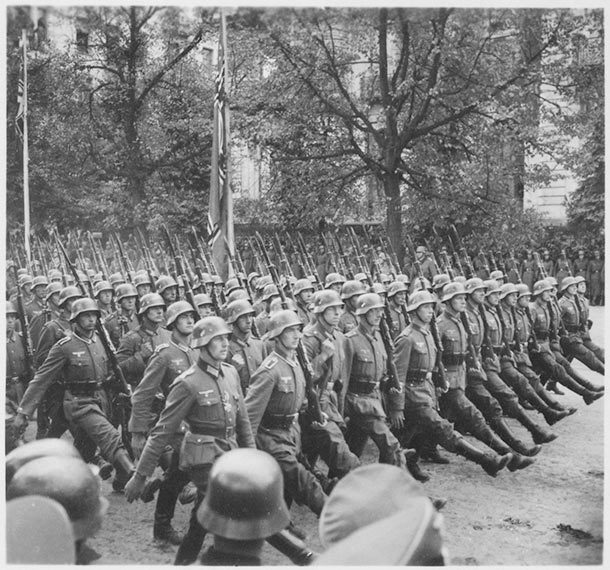 Source: https://www.ushmm.org/wlc/en/article.php?ModuleId=10005070
Source: https://www.ushmm.org/wlc/en/article.php?ModuleId=10005070 England and France assured Poland they would be protected if invaded, yet on September 1st, 1939, Germany invaded Poland and decimated their military with more than 2,000 tanks and 1,000 planes. Within 27 days, Warsaw surrendered. While England and France declared war on Germany in retaliation, they effectively did nothing afterward. The declaration was meaningless, and Poland ultimately remained occupied by Nazi forces until 1945.
Seizing the Initiative at Anzio
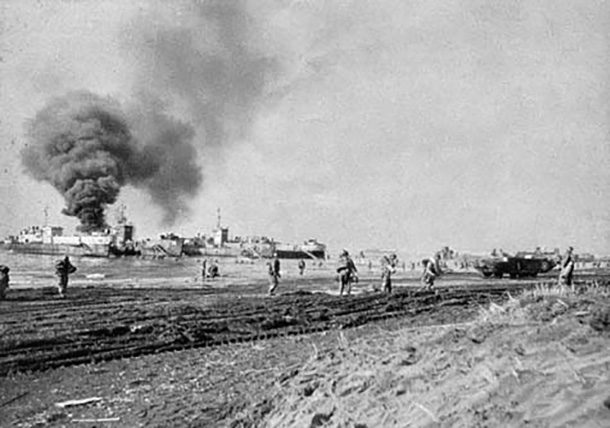 Source: https://history.army.mil/brochures/anzio/72-19.htm
Source: https://history.army.mil/brochures/anzio/72-19.htm On January 22, 1944, British and American troops carried out an amphibious landing on the shores of Italy near Anzio and Nettuno. The German resistance was so light they were able to complete many of their objectives early, moving four miles inland that night. Clearly, the Germans were not ready for the invasion. However, rather than taking the initiative and moving further in toward Rome, the Allies waited and prepared. This proved costly and allowed the German commanders to prepare and lead a much more effective assault, resulting in four months of some of the bloodiest fighting in the war.
The Raid on Dieppe
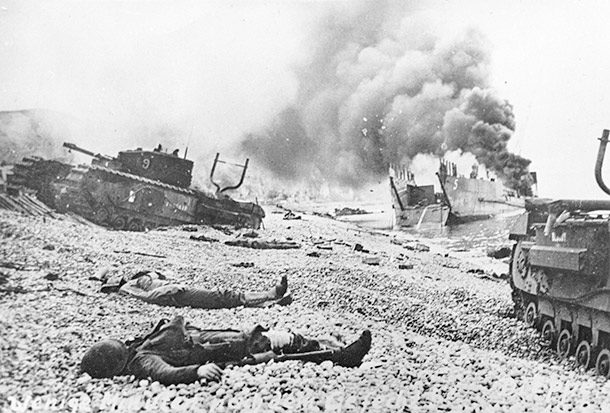 Source: https://www.history.com/this-day-in-history/allies-raid-dieppe
Source: https://www.history.com/this-day-in-history/allies-raid-dieppe In 1942, the Allies raided the German-occupied French seaport of Dieppe. The offensive was comprised of 5,000 Canadian troops, 2,000 English troops, and some American and Free French troops with the aid of tanks and airplanes. The raid was ultimately a disaster with 3,600 men dead, many tanks and aircrafts lost, and the Allies unable to secure many of their targets. Though, some argue this failure helped the Allies gain considerable intelligence for the eventual D-Day invasion.
Kasserine Pass
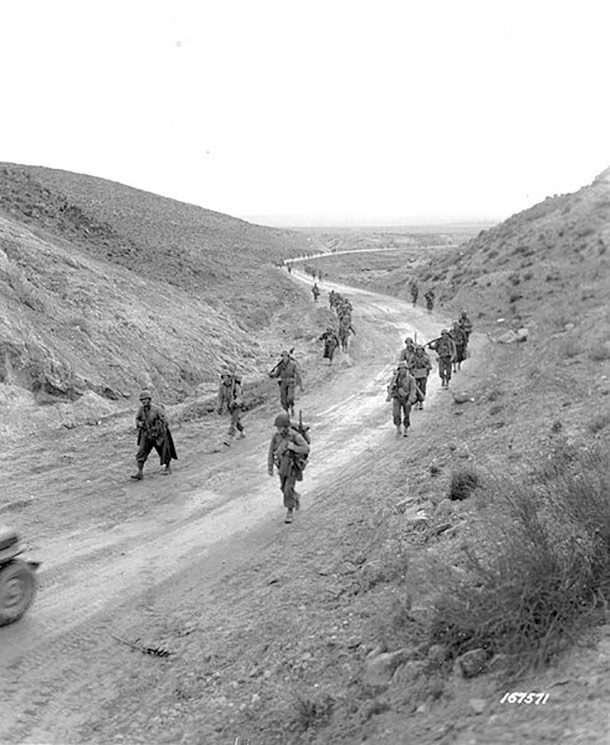 Source: https://www.history.com/this-day-in-history/battle-of-the-kasserine-pass
Source: https://www.history.com/this-day-in-history/battle-of-the-kasserine-pass In 1943, the Allies had a firm grasp on North Africa, and German General Erwin Rommel was sent to regain territory lost. After multiple retreats, Rommel finally decided on Katherine Pass as the route to invade and take Tunis, a strategic goal for both the Allies and Axis power. It proved a bold and successful move. Rommel pushed through American defenses, killing 1,000 American troops and capturing many more.
Poor Tanks
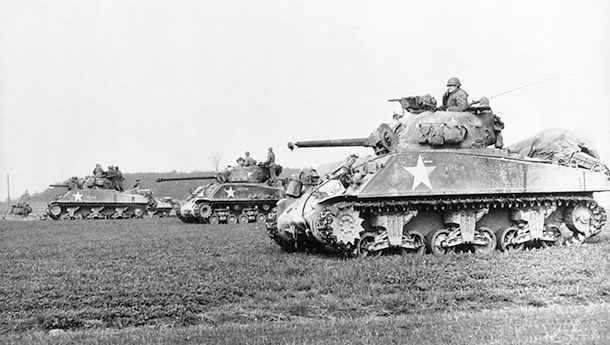 Source: https://www.historyonthenet.com/ww2-tanks/, http://warfarehistorynetwork.com/daily/m4-sherman-vs-german-panther/
Source: https://www.historyonthenet.com/ww2-tanks/, http://warfarehistorynetwork.com/daily/m4-sherman-vs-german-panther/ The American and British forces had substantially weaker and poorly designed tanks in comparison to the Germans. The M4 Sherman had a low-velocity canon, and its armor could easily be pierced by German Panther tanks. American tankers knew they never stood a chance against Panther tanks in battle. Their only saving grace was substantial air support and a greater number of tanks than the Germans. Still, if the Allies would have designed better tanks, fighting the Germans could have been more successful.
Caen
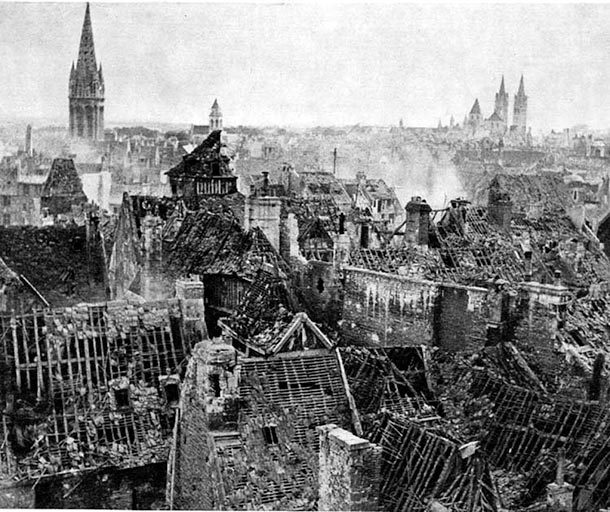 Source: http://www.dailymail.co.uk/news/article-2659668/Ride-death-turned-tanks-sitting-ducks-Continuing-landmark-series-fatal-mistake-Monty-saw-200-tanks-obliterated-single-day.html
Source: http://www.dailymail.co.uk/news/article-2659668/Ride-death-turned-tanks-sitting-ducks-Continuing-landmark-series-fatal-mistake-Monty-saw-200-tanks-obliterated-single-day.html Shortly after the Normandy invasion, British General Bernard Montgomery made the critical error of essentially shutting down his own straightaway path to Paris by heavily shelling the Paris city of Caen. Due to all the rubble and debris, it was nigh impossible for the tanks to pass through, causing 200 tanks to be destroyed and thousands of lives lost.
Americans Didn't Immediately Adopt the Convoy System
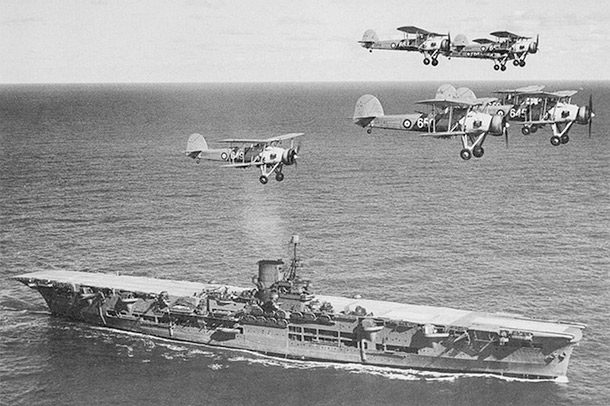 Source: https://www.ussslater.org/history/dehistory/history_atlanticbattle.html
Source: https://www.ussslater.org/history/dehistory/history_atlanticbattle.html Since the British had dealt extensively with the German U-Boat, they had developed many unique systems to combat it, including the most successful Convoy System. However, despite an urgency to do so, the United States didn’t adopt this system until 1942, resulting in substantial and avoidable losses on their part.
Churchill Sending Troops to Greece
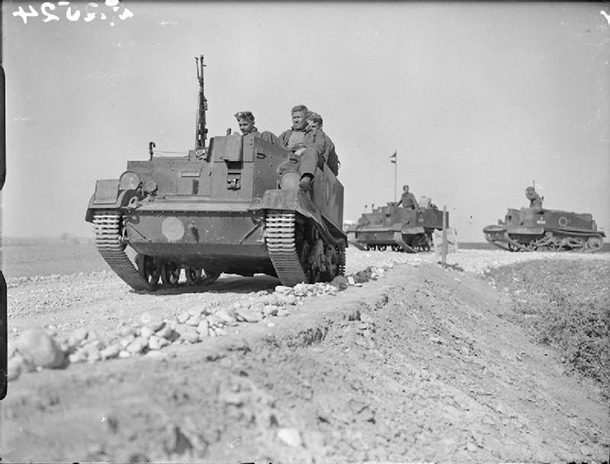 Source: http://www.bbc.co.uk/history/ww2peopleswar/timeline/factfiles/nonflash/a1057556.shtml
Source: http://www.bbc.co.uk/history/ww2peopleswar/timeline/factfiles/nonflash/a1057556.shtml In October 1940, Mussolini sent troops into Greece, triggering a wider-ranging conflict. While the Greeks pushed Mussolini back themselves, the Germans signaled invasion. Churchill, not wanting to lose Greek independence, offered assistance and sent Australian and New Zealander troops from Egypt. The German invasion totally overwhelmed Greek and British forces, and poor communication and bad infrastructure didn’t help. 50,000 British troops evacuated, leaving all their equipment behind, while 3,700 British and 15,000 Greek soldiers were killed. Churchill later admitted the decision was an error.
Ike's Early Errors
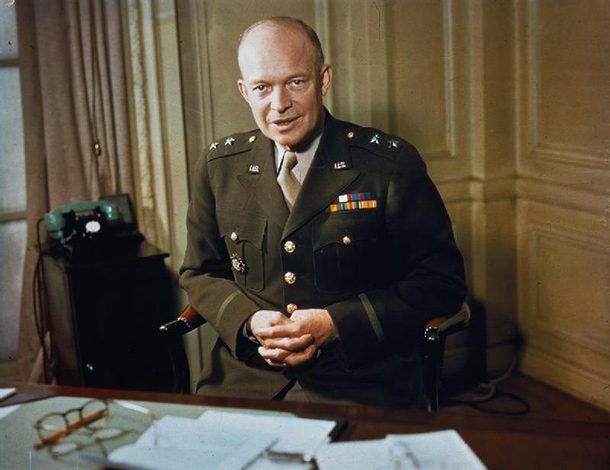 Source: http://www.historynet.com/eisenhower-fire-1944-45.htm
Source: http://www.historynet.com/eisenhower-fire-1944-45.htm While General Eisenhower became one of the greatest leaders in World War 2, his early start in the war was met with many errors, including logistical messes, poor cooperation between English-American militaries, and failure to lead in combat operations. His British contemporary Field Marshal Alan Brooke was increasingly frustrated and critical of Eisenhower at this time, saying, “Nice chap, no general.”
Slow Development of Atomic Research
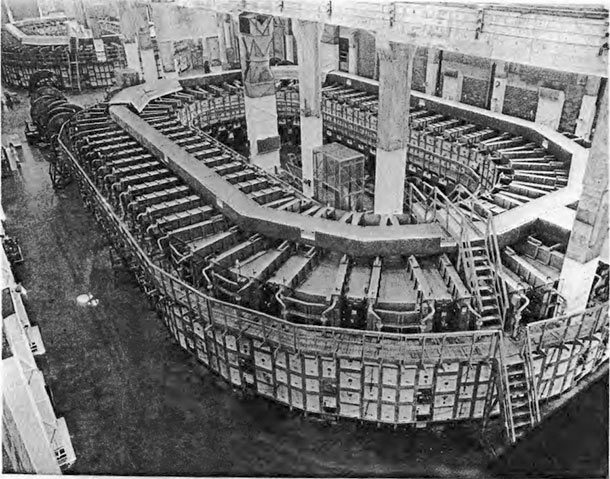 Source: https://www.atomicheritage.org/history/german-atomic-bomb-project, https://www.osti.gov/opennet/manhattan-project-history/Events/1939-1942/reorganization.htm
Source: https://www.atomicheritage.org/history/german-atomic-bomb-project, https://www.osti.gov/opennet/manhattan-project-history/Events/1939-1942/reorganization.htm Albert Einstein wrote a letter to FDR in 1939, warning him about the dangers of uranium enrichment and how it could potentially be used as a bomb by the Germans. The Germans had discovered it and already had a head start. FDR responded cautiously, developing a committee to research the matter further, but the order to build an atomic bomb didn’t come until 1941. If the Germans hadn’t lost their physicists, many of them Jewish, and taken the gamble to develop the project further, it would have been too late, and they would have easily won World War 2.
No French Flanking During the German Blitzkrieg
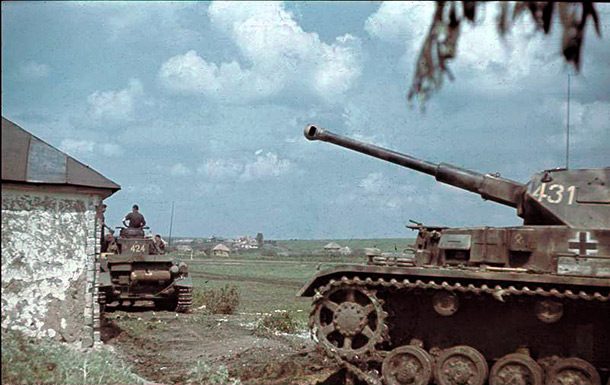 Source: https://www.iwm.org.uk/history/the-german-lightning-war-strategy-of-the-second-world-war
Source: https://www.iwm.org.uk/history/the-german-lightning-war-strategy-of-the-second-world-war Not only did the French fail to anticipate the German blitzkrieg strategy, their army was entirely disorganized and unprepared to counter it effectively. Blitzkrieg is severely vulnerable to counter-attacks and flanking. If the French had developed early flanking defenses like the Russians had, they wouldn’t have been conquered so easily.
Not Preventing the German Evacuation of Sicily
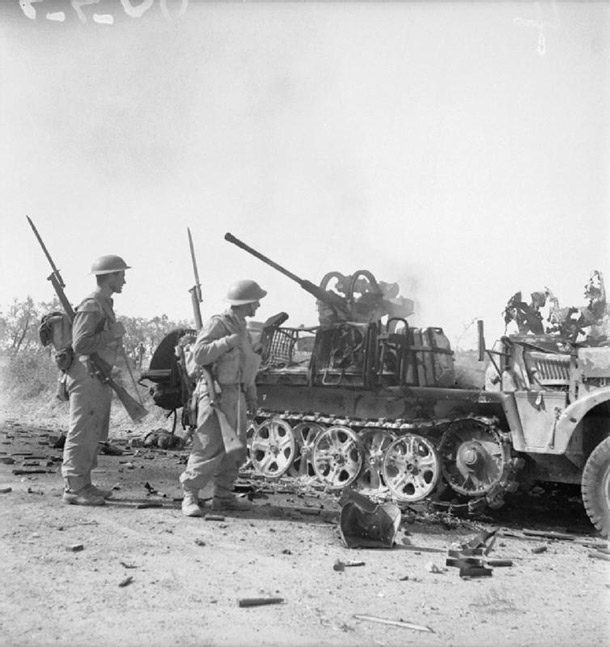 Source: https://www.history.com/this-day-in-history/germans-begin-to-evacuate-sicily
Source: https://www.history.com/this-day-in-history/germans-begin-to-evacuate-sicily Substantial German troops were stationed in Sicily, but the arrival of General Patton in 1943 quickly drove them out. German troops knew they needed to evacuate the island and make for the main Italian peninsula. While Patton secured his goal of taking Palermo, General Montgomery wasn’t able to stop the heavy German evacuation, distracted by Panzer corp brought over from Africa. As a result, the Germans gained 39,569 soldiers, 47 tanks, and tons of ammunition and vehicles as reinforcement on mainland Italy.
Too Few American Submarines
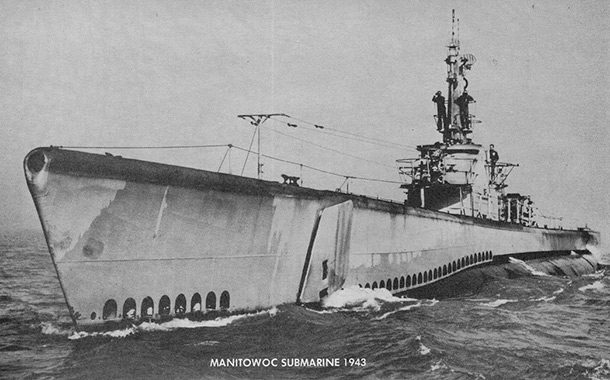 Source: https://maritime.org/pamphist/subslost.htm
Source: https://maritime.org/pamphist/subslost.htm Though only 1.6% of U.S. Navy personnel were submariners, they practically won the Pacific theater with 55% of all Japanese ships sunk. While those numbers are impressive, it also shows a costly mistake. German U-Boats had been around since World War 1, so there’s no reason American forces couldn’t have adopted and invested in a greater submarine fleet to potentially stave off catastrophic losses.
The Rejected Mosquito Bomber
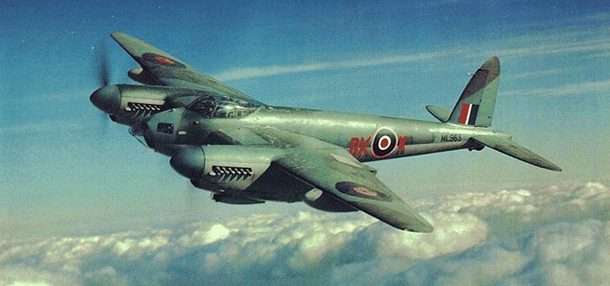 Source: https://www.warhistoryonline.com/world-war-ii/the-de-havilland-mosquito-was-a-wwii-classic.html
Source: https://www.warhistoryonline.com/world-war-ii/the-de-havilland-mosquito-was-a-wwii-classic.html Next to the Spitfire, the Mosquito bomber is perhaps one of the best planes introduced in World War 2. Called “The Wooden Wonder” because its frame was made of wood, it was able to fly high and fast so enemy planes couldn’t reach it. However, despite its incredible design and potential, British Air Ministry officials doubted it. It took a full year into World War 2 for the first plane to get off the ground. After that, they were convinced. But a year in war is costly, and one can only wonder what this amazing craft could have accomplished if it got off the ground years earlier.
FDR's Demand of Unconditional Surrender
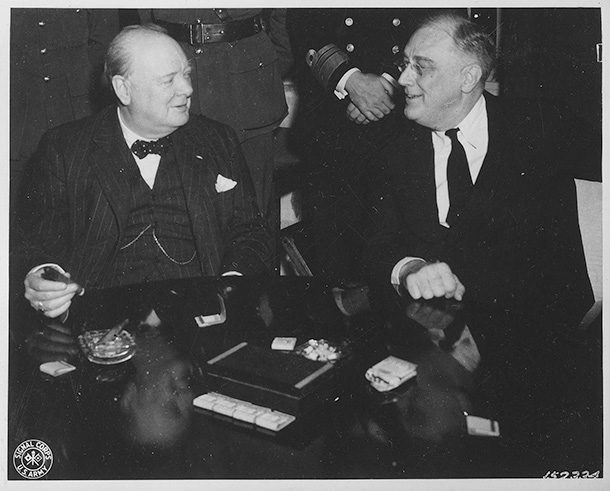 Source: http://www.historynet.com/fdr-writes-policy-blood.htm
Source: http://www.historynet.com/fdr-writes-policy-blood.htm Sometimes all it takes is a few words to totally worsen a situation. In January of 1943, Roosevelt and Churchill met near Casablanca, and during a press conference, Roosevelt called for the “unconditional surrender” of Germany. This caught Churchill by surprise and ended up scaring the German troops into fighting desperately in a corner. Even Eisenhower considered the policy idiotic, saying it would only cost more American lives.
The Battle of Kiev
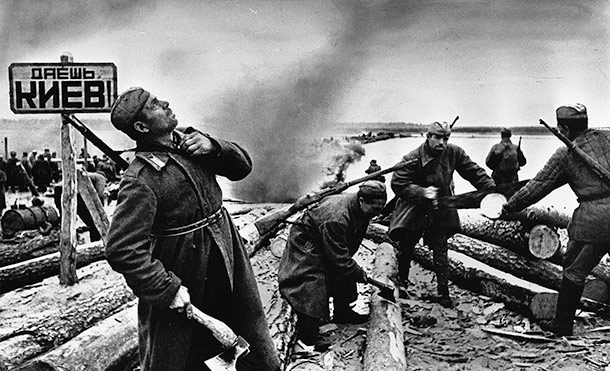 Source: https://www.history.com/topics/world-war-ii/operation-barbarossa
Source: https://www.history.com/topics/world-war-ii/operation-barbarossa Though they had a non-aggression treaty, the Soviets should have known and prepared for the inevitable Nazi Germany invasion. While they developed defense tactics against blitzkrieg, they made other mistakes, like stuffing 600,000 men in Kiev, losing all of them in a bloody war, and watching as Hitler marched within eyesight of Moscow. If it weren’t for the brutal Russian winter helping them get the upper hand, the Soviets would have been kaput.
Pointe du Hoc
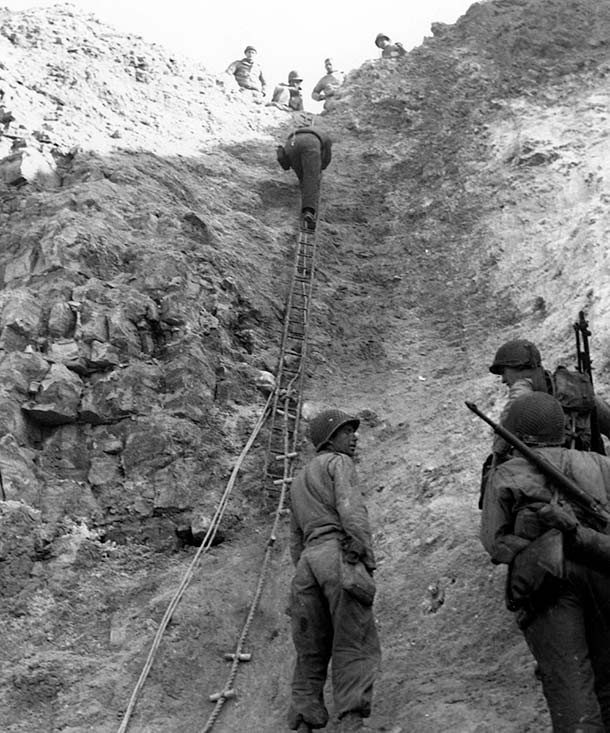 Source: https://dailyhistory.org/What_Mistakes_did_the_Allies_make_during_Operation_Overlord_on_D-Day%3F
Source: https://dailyhistory.org/What_Mistakes_did_the_Allies_make_during_Operation_Overlord_on_D-Day%3F Before D-Day, American Rangers were sent to Pointe du Hoc, a cliff between Utah and Omaha Beaches in Normandy. A battery of 155mm German guns was stationed there and it was their job to capture and stop the guns from firing on Utah and Omaha Beaches. However, on their way there, German defenses delayed them by forty minutes. When they finally arrived and ascended the steep cliff, they discovered the guns had been moved. 150 to 200 men were killed in action, and because of the delay, reinforcements ended up going to Omaha Beach.
Omaha Beach
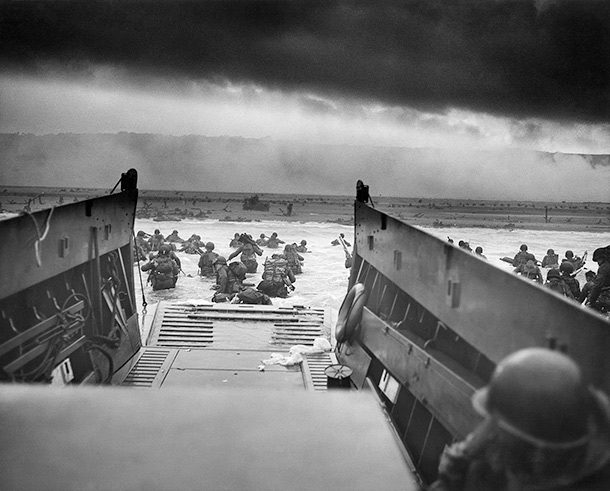 Source: https://dailyhistory.org/What_Mistakes_did_the_Allies_make_during_Operation_Overlord_on_D-Day%3F
Source: https://dailyhistory.org/What_Mistakes_did_the_Allies_make_during_Operation_Overlord_on_D-Day%3F Speaking of Omaha Beach, its invasion by Allied forces was not without serious problems. The Navy launched their landing crafts too far out at choppy sea, resulting in capsized vessels and extensive loss of men and equipment. In addition, the airborne fleet failed in its objective, leaving invading troops to be vulnerable, forcing them to hide behind the bodies of fallen comrades. Fortunately for the Allied forces, the Germans also made their fair share of mistakes.
Dunkirk
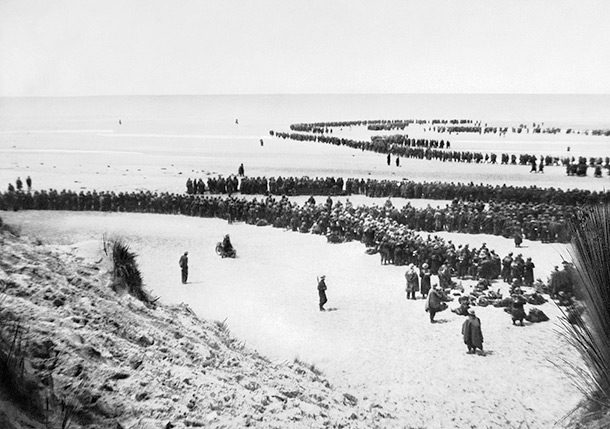 Source: https://theconversation.com/dunkirk-was-a-victory-for-morale-but-ultimately-a-humiliating-military-defeat-81195
Source: https://theconversation.com/dunkirk-was-a-victory-for-morale-but-ultimately-a-humiliating-military-defeat-81195 While Dunkirk turned out to be a success story, rescuing hundreds of thousands of British soldiers from enemy territory, it was also a massive military disaster that almost left England defenseless and without an infantry. The 400,000 British troops stationed in Belgium were there to fight off the German invasion, but instead, they were left surrounded and practically powerless. Poor-planning, intelligence, and leadership put them in the awful Dunkirk situation. If Hitler had destroyed and captured the British men there, things may have turned out differently in the war.
Intelligence Failure of Pearl Harbor
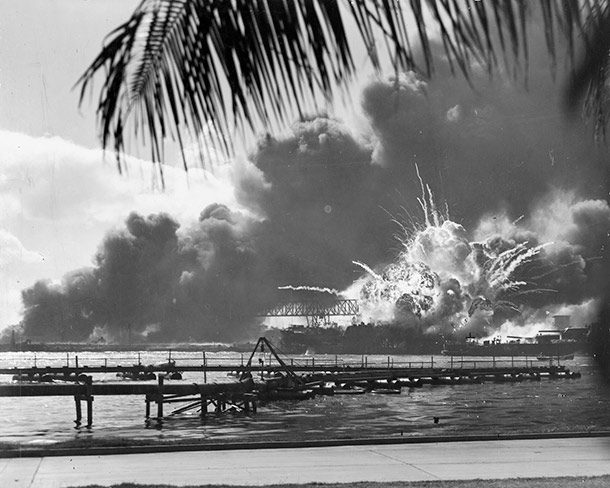 Source: https://worldview.stratfor.com/article/pearl-harbor-intelligence-failure-lives-infamy
Source: https://worldview.stratfor.com/article/pearl-harbor-intelligence-failure-lives-infamy Outside of racist assumptions about the people of Japan, the United States intelligence about the military capabilities of Japan was horribly out of date due to Japan’s intense secrecy and the US not having deep contacts on the ground. For instance, the US thought they lacked the fuel capacity to bring them in range of Pearl Harbor, that their torpedoes wouldn’t be ineffective in Pearl Harbor’s shallow waters, and that their airplanes were copies from other military forces.
Operation Market Garden
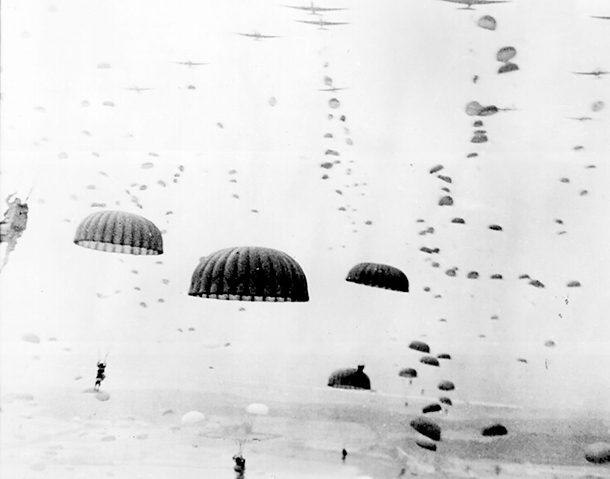 Source: http://www.bbc.co.uk/history/worldwars/wwtwo/battle_arnhem_01.shtml
Source: http://www.bbc.co.uk/history/worldwars/wwtwo/battle_arnhem_01.shtml The brainchild of General Bernard Montgomery, Operation Market Garden was a massive operation that could have not only ended the war but drastically changed the European landscape, keeping the Soviets from taking over Berlin. The operation involved a narrow thrust into German lines rather than a wide offensive. For a time, it looked like the Allied forces victory was within grasp, but when they reached the route to Arnhem, everything fell apart, thousands were killed, and their troops were forced to retreat.
Not Fighting the Soviets
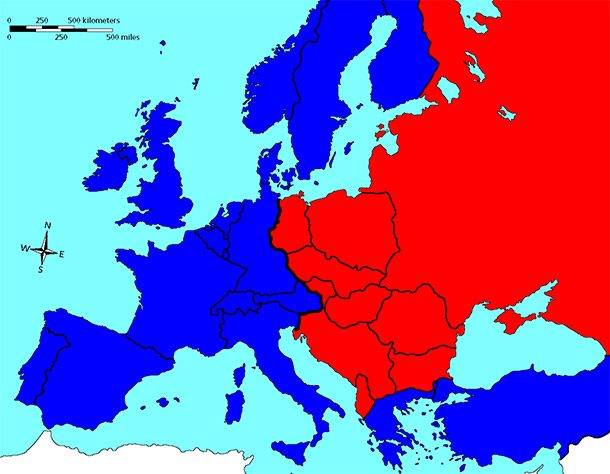 Source: http://www.dailymail.co.uk/debate/article-1209041/Operation-unthinkable-How-Churchill-wanted-recruit-defeated-Nazi-troops-drive-Russia-Eastern-Europe.html, https://www.rbth.com/blogs/2013/06/13/operation_unthinkable_churchills_plan_to_start_world_war_iii_26091
Source: http://www.dailymail.co.uk/debate/article-1209041/Operation-unthinkable-How-Churchill-wanted-recruit-defeated-Nazi-troops-drive-Russia-Eastern-Europe.html, https://www.rbth.com/blogs/2013/06/13/operation_unthinkable_churchills_plan_to_start_world_war_iii_26091 This one is definitely the most controversial. When Nazi Germany surrendered to the Allied forces, both General Patton and Winston Churchill already had their eyes set on the Soviet Union, fearing their growing dominance. Churchill had his war cabinet come up with intelligence and a plan to potentially strike against Soviet forces in Eastern Europe and drive them back. It was called Operation Unthinkable. The outlook, unfortunately, was not good. His cabinet told him the Soviets would likely bombard the UK with missiles and other advanced weaponry, so Churchill backed off and so did the Allies. The Iron Curtain fell quickly, allowing for a long, tense Cold War. Perhaps that was their greatest mistake?



























